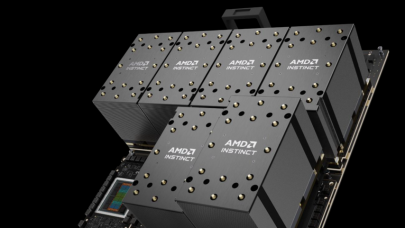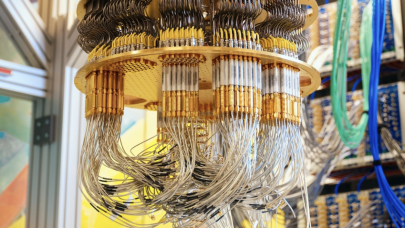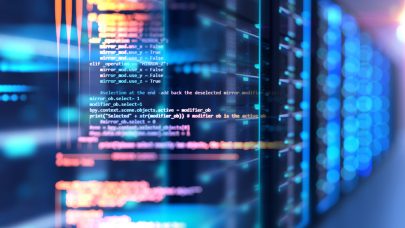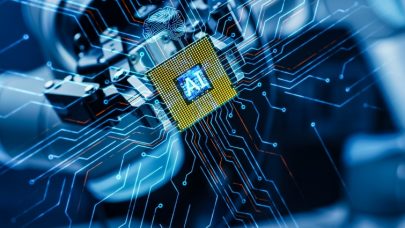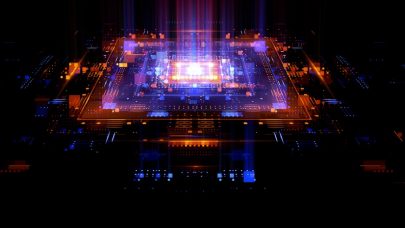Nvidia’s barrage of quantum news at GTC24 this week includes new products, signature collaborations, and a new Nvidia Quantum Cloud for quantum developers. While Nvidia may not spring to mind when thinking of the quantum computing landscape, the GPU/accelerated computing giant has been an important player there for years where its GPUs are used by basically every classical system that’s doing quantum simulation today on classical hardware.
“Nvidia’s perspective on quantum computing is that it represents a next evolution and accelerated computing. We have been doing this already for many decades, and we have a history of investing early in building out platforms to enable researchers and scientists pre inflection point for these new phases of accelerated computing,” Tim Costa, director of HPC and quantum computing, told HPCwire in a pre-GTC24 briefing.
“The first of those, of course, was scientific computing with CUDA, which came long before there was production and use of GPUs for scientific computing. We built out that platform to enable it. [Since then] deep learning and generative AI have been two major inflection points.
“We look at quantum as something which is pre its inflection point today. Useful quantum computing doesn’t exist yet. But when it does come, it will look like an evolution of accelerated computing. It will result in an increase in heterogeneity of compute in major data centers and scientific computing instruments, where you’re going to add a QPU (quantum processing unit) in next to the GPUs and CPUs that you’ve been working with,” said Costa.
Here are four highlights:
- Nvidia Quantum Cloud. Based on Nvidia’s CUDA-Q platform, Quantum Cloud is a set of microservices for building and testing in the cloud new quantum algorithms and applications — including simulators and tools for hybrid quantum-classical programming. It’s also a place for ISPs to release applications such as one being shown at GTC. Eventually it will include back-end access to third-party quantum hardware.
- ABCI-Q and Gefion Wins. Being built by Fujitsu at the Japan’s Global Research and Development center for Business byQuantum-AI Technology (G-QuAT) National Institute of Advanced Industrial Science and Technology (AIST), ABCI-Q will be deployed early next year and is designed for integration with future quantum hardware. Gefion is a DGX SuperPod being deployed by Novo Nordisk Foundation Supercomputer for Research in Quantum and Healthcare.
- cuQPC. This is a new library to accelerate post quantum cryptography algorithms. “What we’re doing is accelerating all the fundamental mathematical primitives which are required underneath these PQC algorithms so that they will run on GPUs at 340 to 515 times faster than they do on CPUs,” said Costa. Nvidia is working with SandboxAQ, QuSecure, PQShield, and Open Quantum Safe, evolutionQ, among others, and cuQPC will be integrated into libqs (git hub) and is part of the newly formed Post-Quantum Cryptography Alliance at The Linux Foundation.
- CUDA-Q Academic. Aimed at domain experts, CUDA-Q academic is a partnership with a number of universities with whom Nvidia has co-developed with professors who teach quantum computing courses, modules for learning quantum computing using CUDA Q. “So these will be deployed in courses from those professors and also released as an online learning resource by Nvidia — so it’s interactive Jupyter notebooks, lectures, explanations, exercises and assessments, and, of course, will run on GPUs in the cloud,” said Costa.
The Nvidia perspective is interesting in that it is informed by the company’s broad hardware and software portfolio. Costa cited many of the by-now familiar needs facing quantum — reliable qubits, more qubits (scale), integration with HPC broadly, error correction, and discovery of useful algorithms, which when run on quantum hardware, will outperform classical systems — as Nvidia motivators.
“What we do is we build a single quantum stack, but we release it in a disaggregated way, so that people who have different needs can intercept that stack at different places, said Costa. “Our products include cu-QUANTUM to accelerate all kinds of quantum simulation, from algorithm design, with circuit simulation down to accurate physics, accurate device modeling and low level simulation for qubit design; DGX Quantum (integrated hw/sw system) to integrate quantum and classical together with very low latency; and CUDA-Q, which is our heterogeneous or integrated quantum-classical platform, including libraries and appropriate model tools and infrastructure for things like error correction.”
“Everything that we do in Nvidia is to enable researchers and it’s a platform not a solution. What that means is we have a lot of partners, and we’re very focused on generating partnerships. We have over 160 partnerships today, over 90% of the largest quantum computing startups are working with us, over 78% of the QPU that you can that you can deploy today support CUDA-Q so it’s becoming the lingua franca of quantum computing. And then 15 out of 17 of the leading frameworks are accelerated on NVIDIA GPUs. Alright, so that’s my background on Nvidia Quantum,” he said.
The NVIDIA Quantum Cloud launch was perhaps the most prominent of the GTC24 announcements. Costa argues providing access to the growing number of developers is also a key need.
“A conservative estimate of how many quantum developers that are out today is about 500,000, if you just go by downloads of the major frameworks on a on a monthly basis. But there’s only 50 publicly available QPUs and their typical uptime is 10 to 20% Because these are physics experiments, they’re not computers by the standard of a modern classical system. Their scale is very low. It’s zero fault tolerant qubits available today. But we’re going to need on the order of 100 to 1000 or more in order to do useful applications. We need to increase the access and availability of quantum resources for the world’s scientists to tackle these problems,” said Costa.
Not sure all of the quantum computers developers would agree with Costa’s characterization of their devices as quite so primitive. Also, many of the biggest cloud providers — AWS, Microsoft Azure, Google — and quantum hardware markers — IBM, D-Wave, etc. — have portals for QC training, algorithm development, and delivering access to QPUs. In that sense, Nvidia is joining the crowd and already works with many of them. Makings sure its offerings are not directly competitive with the big cloud providers, for example, may be an Nvidia challenge.
Costa said, “When we release it next week, it will be a set of microservices, which allows a CUDA-cu developer to locally compile their application with a flag that says please run this on Nvidia quantum cloud, when then when they type slash a dot out, and that application runs; it will call our cloud API’s and run on DGX cloud on GPU supercomputer that that we provide there. Later, we’ll also add a developer portal, a kind of a new front door on the web to this to this area, so you can develop CUDA quantum applications in the cloud with a compiler service, both within that web portal but also as something that can be called locally, called the compiler as a cloud API. Those applications would then run on that same resource that we’ve been using the micro services for now.
“It will also be a place where ISPs can actually release their own quantum applications. And we’ll show a demo next week of QC, where it’s Promethium, the quantum-inspired chemistry package [from QC Ware], running on NVDIA Quantum Cloud, on those GPUs, and see those results. Eventually down the road, we’re also going to add support for our partners QPUs as quantum back ends in Nvidia quantum cloud.”
Here’s an excerpt from the official announcement:
“Quantum Cloud features powerful capabilities and third-party software integrations to accelerate scientific exploration, including:
-
- The Generative Quantum Eigensolver, developed in a collaboration with the University of Toronto, leverages large language models (LLMs) to enable a quantum computer to find the ground-state energy of a molecule more quickly.
- Classiq’s integration with CUDA-Q allows quantum researchers to generate large, sophisticated quantum programs, as well as to deeply analyze and execute quantum circuits.
- QC Ware Promethium tackles complex quantum chemistry problems such as molecular simulation.
“NVIDIA has more than 160 partners in its quantum computing ecosystem. Leading cloud service providers are integrating Quantum Cloud into their offerings, including Google Cloud, Microsoft Azure and Oracle Cloud Infrastructure, as are many leading quantum companies, such as IonQ, IQM Quantum Computers, OQC, ORCA Computing, qBraid and Quantinuum.”
Costa provided a few more details on the ABCI-Q and Gefion projects.
The ABCI-Q system will have more than 2000 H100 GPUs and 500 nodes connected by InfiniBand and powered by CUDA-Q. “This is a really exciting system that’s going to enable enable the Japanese research community to solve many of the challenges on on the earlier slides. It will be a platform for the advancement of quantum simulation, the integration of quantum classical systems, and the development of new algorithms inspired by quantum technology,” said Costa
The Gefion supercomputer is based on the DGX SuperPOD architecture and will be deployed by the Novo Nordisk Foundation for research in quantum, healthcare, and on the green transition. “Not long ago, they announced the NNFQCP (Novo Nordisk Foundation Quantum Computing Programme), which is a 12-year initiative to build a quantum computer capable of solving important problems in life sciences. This is really a full stack quantum computing program and a large one and a lighthouse in the community doing really interesting work across low level qubit design all the way up to algorithm design for Life Sciences applications. So this supercomputer is going to be really essential to that work, really excited to see what they do with that,” said Costa.
Link to Nvidia Cloud announcement, https://www.hpcwire.com/off-the-wire/nvidia-launches-cloud-quantum-computer-simulation-microservices/
Link to Nvidia ABCI-Q announcement, https://www.hpcwire.com/off-the-wire/nvidia-powers-japans-abci-q-supercomputer-for-quantum-research/
Link to Nvidia PQC announcement, https://www.hpcwire.com/off-the-wire/nvidias-new-cupqc-library-enhances-security-algorithms-with-gpu-parallelism/








































